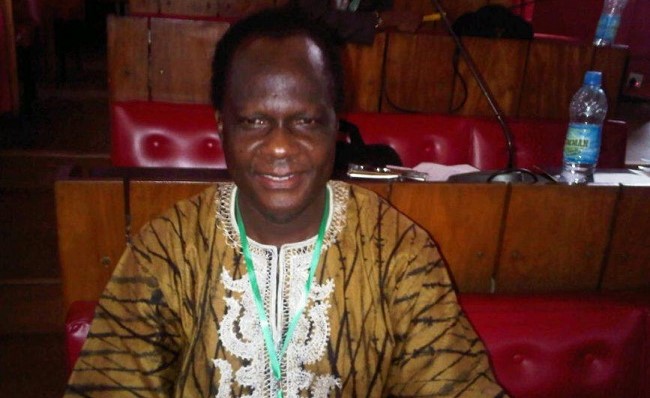As the world converges on Baku, Azerbaijan, for the 29th Session of the Conference of the Parties (COP29) to the United Nations Framework Convention on Climate Change (UNFCCC) less than 11 days away, Nigeria has yet another unique opportunity to assert its interests and priorities in the global climate discourse. With the country’s vulnerability to climate change evident, it is imperative that Nigeria’s delegation pushes a bold agenda that addresses the nation’s pressing climate needs.

To signal its commitment, Nigeria has streamlined its delegation, choosing delegates essential for advancing its climate goals. The government has also introduced a Climate Accountability and Transparency Portal and reduced spending. The National Council on Climate Change (NCCC), working with the European Union, has trained negotiators to build consensus and represent Nigeria’s interests effectively. These actions reflect Nigeria’s resolve to maximise its impact at COP29.
A top priority for Nigeria in Baku should be securing increased adaptation financing. While wealthier nations are primarily responsible for historic emissions, African countries, including Nigeria, suffer disproportionately from climate impacts. Notably, African nations received only 20% of global adaptation finance flows in 2021–2022, a figure far below the 45% allocated to East Asia and the Pacific region. As Nigeria faces intensifying climate impacts like rising temperatures, severe flooding, and drought, adaptation funding is vital to safeguard livelihoods and stimulate economic resilience.
In 2024, floods have affected 34 states, 217 local governments, and over a million people. Nigeria’s National Adaptation Plan (NAP) estimates that $142 billion is needed to build climate resilience by 2030. At COP29, Nigeria should advocate for increased financial commitments from developed countries, emphasizing the importance of grant-based funding and technology transfer. Furthermore, Nigeria’s climate response requires enhanced capacity and expertise across various sectors.
Thus, COP29 offers a crucial platform to secure commitments for technology transfer, training, and capacity-building programs that could foster homegrown climate solutions and support green job creation.
Another key focus for Nigeria is enhancing its technological capabilities to fight climate change. The Federal Ministry of Science, Technology, and Innovation (FMSTI) has initiated a needs assessment to identify essential technologies for climate mitigation and adaptation across agriculture, transportation, and biodiversity.
However, constraints in trained manpower, suitable technology, and inadequate funding hinder progress in biodiversity conservation. By expanding partnerships with other countries and international organisations, Nigeria can address these gaps and protect its rich biodiversity. This collaboration is essential, given Nigeria’s high deforestation rate of 3.7% annually, one of the highest globally.
Food security also remains a significant concern as climate change disrupts Nigeria’s agricultural systems, which are highly dependent on rainfall. Droughts, floods, and erratic weather patterns have severely impacted crop yields, affecting the livelihoods of the 70% of Nigeria’s workforce involved in farming. Through climate-smart agriculture (CSA), Nigeria is working on seed improvement, hybridisation, and climate-resilient crops.
The Federal Ministry of Agriculture and Food Security (FMAFS) is promoting the Nigeria Farmers’ Soil Health Card Scheme (NFSHCS), an initiative aimed at enhancing soil fertility, improving productivity, and reducing greenhouse gas emissions. At COP29, Nigeria should seek investment in climate-smart seeds, irrigation systems, agroforestry, and land restoration technologies to address challenges like land degradation and desertification.
Nigeria’s energy sector, responsible for around 70% of the country’s greenhouse gas emissions, is also an area of critical focus. The government aims to produce 30% of its electricity from solar and wind power by 2030. Additionally, Nigeria has committed to the Global Renewables and Energy Efficiency Pledge, which targets a tripling of renewable energy and doubling energy efficiency by 2030.
Nigeria has made strides in renewable energy, with initiatives such as the Renewvia and the Rural Electrification Agency (REA) solar mini-grids in rural areas, and the World Bank and African Development Bank-supported Nigeria Electrification Project (NEP). With these efforts, Nigeria is well-positioned to secure additional partnerships for its energy transition at COP29.
Moreover, reducing emissions from the transportation sector is vital. The transportation industry, a significant carbon emitter, releases approximately 60 million tons of CO2 yearly, a figure expected to rise. At COP26, Nigeria pledged to reach carbon neutrality by 2060 and aims to deploy 13 million electric vehicles (EVs) by 2050, with 100% adoption by 2060. As a step toward this goal, Nigeria announced the roll out of 100 electric buses at COP28, an initiative that can attract further investment in clean transportation.
Borno and Lagos states are already making strides in EV adoption, with Lagos committing $260 million for 1,000 electric vehicles. Nevertheless, Nigeria needs to improve EV infrastructure to fully embrace electric mobility. At COP29, Nigeria should present its clean transport strategy to garner the necessary funding and expertise.
This year’s COP presents a pivotal moment for Nigeria and other climate-vulnerable nations to assert their priorities and gain substantial commitments from the global community. Nigeria’s delegation should be united in its efforts, with government, civil society, and private sector stakeholders all working together toward shared climate goals.
Additionally, Nigeria can leverage the Nairobi Declaration to enhance its influence, using it as a blueprint to advocate for climate finance, climate justice, technology transfer, energy transition, climate-resilient agriculture, and capacity building. This approach will help Nigeria balance its development ambitions with the global climate response.
Following COP29, the National Council on Climate Change (NCCC) is expected to hold a post-COP29 meeting to evaluate outcomes and develop an implementation plan. This will be a critical next step in ensuring Nigeria’s commitments translate into tangible climate actions.
All the best to our delegates at COP29.
By Professor Daniel Musa Gwary is the Director for Centre for Arid Zone Studies, University of Maiduguri. His work focuses on climate adaptation and disaster risk management

A great insight and sound recommendations to our delegates to COP29.